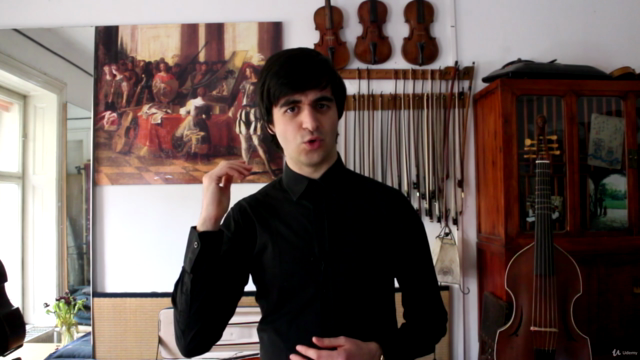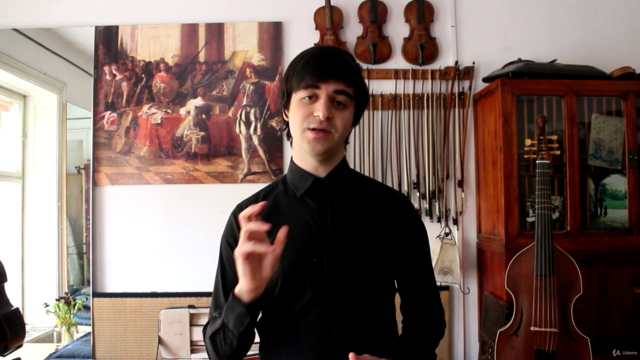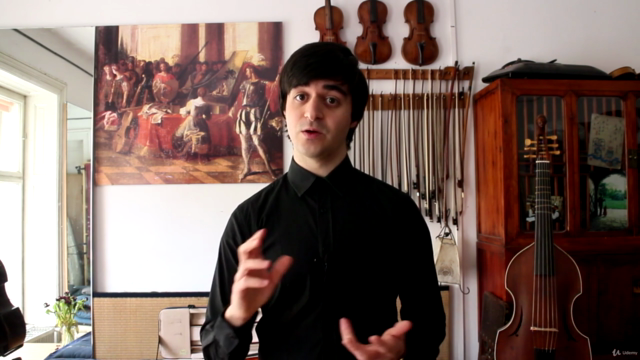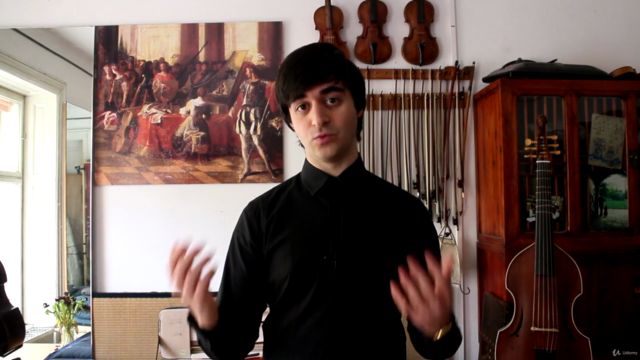Classical music appreciation: basics

Why take this course?
Course Title: Classical Music Appreciation: The Essentials 🎼
Headline: Dive into the World of Classical Masterpieces - From Basics to Brilliance ✨
Description:
Hello and welcome to a journey through the captivating realm of Classical Music! 🌟
I've crafted this course with a singular goal in mind: to empower you with the tools necessary to navigate the vast ocean of Classical Music with ease, without getting bogged down by overwhelming technicalities. This course is designed to be simple, direct, and culturally enriching, providing practical insights that anyone can grasp.
Key Topics Covered:
📅 The Timeline of Classical Music:
- Explore the four defining periods in classical music history.
- Discover the major styles and key composers who shaped each era.
- Understand how these periods set the stage for the music we enjoy today.
🎵 Music's Triple Nature:
- Unravel the three fundamental components of music and learn how they interplay to create a symphony of harmony, melody, and rhythm.
- Gain insights into the compositional techniques that great composers used to evoke emotion and tell stories.
📖 The Genres:
- Familiarize yourself with the most common terminologies in classical music.
- Learn about different types of pieces from sonatas and symphonies to operas and concertos.
- Get an overview of what to listen for in each genre.
🎺 The Orchestra:
- Delve into the world of orchestral instruments, both traditional and contemporary.
- Identify the distinct sounds and characteristics of each instrument within a symphony orchestra.
- Understand how each instrument contributes to the overall texture and dynamic range of classical music.
A Touch of Music Appreciation: To complement the informative content, I've included engaging lectures on music appreciation. These sessions are designed to uncover the hidden gems within classic compositions and reveal the sheer beauty that lies within every note. 🎵
If you're skeptical about how a few minutes of lecture can transform your listening experience, join us and let the music speak for itself. You won't be disappointed by the depth and richness that await you! 🌻
Join Us on This Musical Adventure! Whether you're a beginner or someone looking to deepen your understanding of classical music, this course is tailored to guide you through the history, styles, definitions, and backstories that form the foundation of this timeless art form. Let's embark on this enlightening journey together and uncover the joys of classical music appreciation. 🎵📚✨
Course Gallery




Loading charts...
Comidoc Review
Our Verdict
With a 4.87 global rating from over 2500 subscribers, Classical Music Appreciation: Basics proves to be an engaging and informative introduction to classical music history, styles, definitions, and cultural context. The course's effective use of long-tail keywords has drawn in students curious about expanding their musical understanding, while the passionate instructor leaves learners with a renewed appreciation for the genre—a testament to the power of education in enriching one's life and broadening perspectives. Despite minor critiques regarding structure and breadth, Classical Music Appreciation: Basics remains a highly recommended starting point for music enthusiasts.
What We Liked
- The course offers an in-depth exploration of the major periods and authors in Classical Music history, providing a solid foundation for further study.
- It breaks down complex musical concepts into easy-to-understand terms, making it accessible to those without prior musical knowledge.
- The instructor's enthusiasm and passion for classical music are contagious, inspiring students to explore and appreciate the genre more fully.
- The course includes numerous musical examples and resources, which enrich the learning experience.
Potential Drawbacks
- Some students may prefer a more structured approach, with instrument and element fundamentals introduced before diving into different periods.
- While most students appreciate the engaging teaching style, a few might find it subjectively harder to follow without a more traditional lecture-based format.
- There is room for more diverse musical examples in future iterations of the course to showcase an even broader range of styles and composers.
- A handful of learners have expressed a desire for greater depth on specific topics or periods, which could be addressed in potential advanced courses.